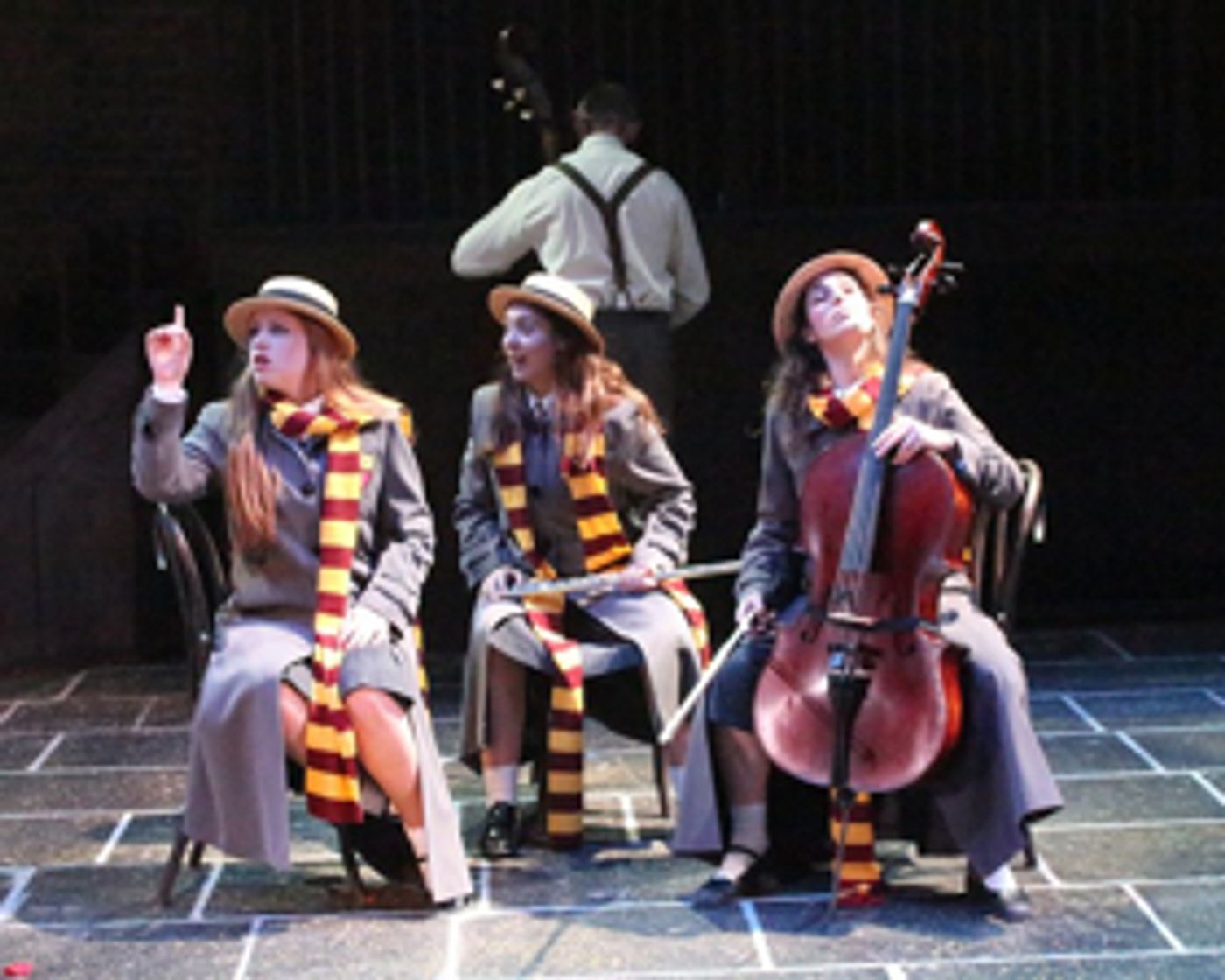Review: DAISY PULLS IT OFF, Charing Cross Theatre

![]() It's old enough for its own daughters to be at boarding school now, and there are times when it shows. Denise Deegan wrote Daisy Pulls It Off as a parody of the breathless, pulpy, girls boarding school novels that were popular in the early 20th century, but today, most people's reference point will be the Harry Potter books (and, especially, films). Without coming over all Roland Barthes, we see the play rather differently in 2018 than did West End audiences in the 80s. More of that later.
It's old enough for its own daughters to be at boarding school now, and there are times when it shows. Denise Deegan wrote Daisy Pulls It Off as a parody of the breathless, pulpy, girls boarding school novels that were popular in the early 20th century, but today, most people's reference point will be the Harry Potter books (and, especially, films). Without coming over all Roland Barthes, we see the play rather differently in 2018 than did West End audiences in the 80s. More of that later.
Ilona Dearden has designed a beautiful set and it must be a thrill for the first graduating class of Guildford School of Acting's BA (Hons) Actor-Musician to have such a stage on which to work, and in the West End to boot. To their (and their GSA's) credit, they rise to the occasion with skill and commitment.
The central relationship between the two misfits holds the play together. Katy Ellis gets the naive enthusiasm of Trixie exactly right, befriending the ostracised scholarship girl and showing loyalty when it was most needed. Marina Papadopoulos excels as the eponymous Daisy, always seeing the best in people, beaming out the charisma the role demands, but never toppling over into caricature - rightly, that's left to others! She sings like a West End star too, although why the superb musical talent on show is so underused, remains something of a mystery.
The pair get plenty of wholehearted support from the rest of the young, gifted cast, although I felt for many of them, forced to flesh out hackneyed stereotypes by Deegan's creaking script. Persia Babayan-Taylor plays the meanest girl with just enough villainy and Gemma Evans tags along as her sidekick with considered toadiness. Poor Mark Fitzsimmons draws the short straw with comedy Russian, Mr Scoblowski, but he gets through it commendably.
Director, Nicholas Scrivens, never quite settles on a tone for the production. Is there a knowing wink her and there or not? Are the Hogwartsian scarves a nod in that direction or just coincidence? And why is this trailblazing scholarship kid from the East End about the poshest, most poised, prettiest (one could throw in whitest too) girl in the school? (Which leads to a slightly uneasy conclusion that Daisy is ultimately accepted - at least in part - because she is "the best" on the criteria each her schoolmates most values, be they sports jocks, academic geeks or as shallow as Regina George and The Plastics. Quite a bar to clear and rather a grim message for aspirant girls.)
Perhaps the biggest issue with the play is its treatment of bullying. Grangewood School for Young Ladies is presented as a template for the new meritocracy clever Daisy represents, yet bullying is tolerated, even encouraged, by staff, and ultimately forgiven after a perfunctory act of apology. Maybe that passed muster in the early 80s (though even then theatre and television were taking the issue more seriously) but it looks terribly anachronistic in 2018.
Which takes us back to Barthes and our role as an audience. I do not believe in sanitising texts like Huckleberry Finn or bumping an extra five years on to Juliet's age to assuage modern sensibilities, but I do think that what we know now shapes how we see revived works. Consequently, it is incumbent on the creative team to address that inevitable challenge of staging ageing works. In meeting that objective, this production is uncomfortably passive.
Though my reaction was nothing like as extreme, I was reminded of watching episodes of Steptoe and Son a few years ago. In the 70s, the Galton and Simpson show was much loved as a comedy classic, but, though I still saw the jokes and the absurdity I did back then, forty years on, the "sitcom" was insistently, inarguably, uncomfortably a tragedy. The laughs just died on my lips, the appalling psychological trauma overwhelming me. I literally looked away.
Daisy does indeed pull it off, but quite what "it" is, was never fully resolved.
Daisy Pulls It Off continues at the Charing Cross Theatre until 30 June.
Photo Mark Dean.
Reader Reviews
Powered by
|
Videos

